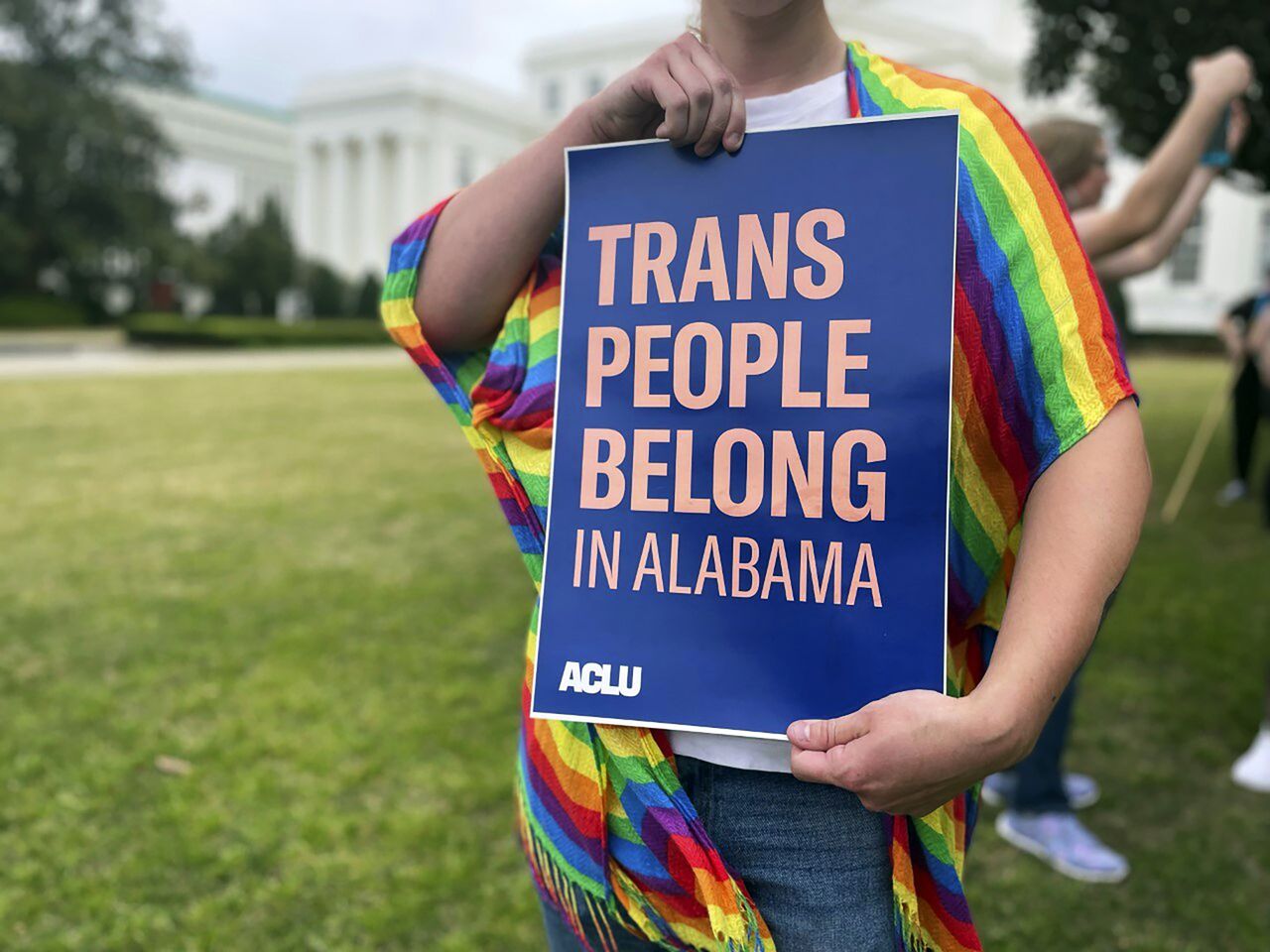Civil rights groups condemn Alabamaâs ban on collegiate transgender athletes as wrong and unnecessary
In response to Alabama Gov. Kay Ivey signing a law prohibiting higher education institutions from allowing transgender people to participate in sports, civil rights groups say the law’s consequences go “far beyond an athlete’s college eligibility.”
“Its only purpose is to shame transgender people publicly,” said Dillon Nettles, the policy and advocacy director at the ACLU of Alabama. “The reality is that trans folks will always be a part of our schools, universities, and our community.”
Under the new law, educational institutions upholding the ban would be protected from any investigations or official complaints. In addition, entities within the government, athletic associations and academic bodies would be prohibited from retaliating against those who report a violation of the law.
The text of the bill state that “physical differences between biological males and biological females have long made separate and sex-specific sports teams important so that female athletes can have equal opportunities to compete in sports.”
There is no consensus within the scientific community about advantages or disadvantages of trans athletes.
It also grants students who are “deprived of an athletic opportunity or [suffer] any direct or indirect harm as a result of a violation” the right to sue public higher education institutions.
Organizations such as the National Center for Transgender Equality (NCTE) believe the law will further marginalize transgender people.
“These actions will lead to further isolation and stigmatization of transgender athletes,” an NCTE representative said in a statement to Reckon. “[It will] contribute to the broader cultural narratives surrounding the trans community as a whole.”
Since the new Alabama law is an expansion of an existing ban on transgender athletes from competing in K-12 sports, enacted in 2021, NCTE sees this as precedent for other states that have similar bans.
“Bans such as this fly in the face of universal democratic values and transgender people’s fundamental rights to have the same social and professional opportunities that we all expect,” said NCTE.
Legislators in Alabama and other states have passed bills banning transgender people from using bathrooms that correspond with their gender identity as well as the use of gender-affirming hormones and puberty blockers to transgender minors. However, a judge temporarily halted implementation of the medication ban on May 2022.
Several bills proposed in the Alabama legislature would ban drag shows from taking place in public and prohibit LGBTQ+ material to be taught in public K-12 classrooms.
In the previous year, both Iowa and South Dakota implemented bans similar to Alabama’s. Recently, Missouri’s legislature passed a bill prohibiting transgender athletes from participating on girls’ and women’s sports teams. Missouri Gov. Mike Parsons is expected to sign it into law.
Such bills have also faced legal challenges, however. In a decision last month, the U.S. Supreme Court ruled against West Virginia’s transgender athlete ban, siding with a 12-year-old transgender girl who wanted to compete on her middle school’s cross-country team.
